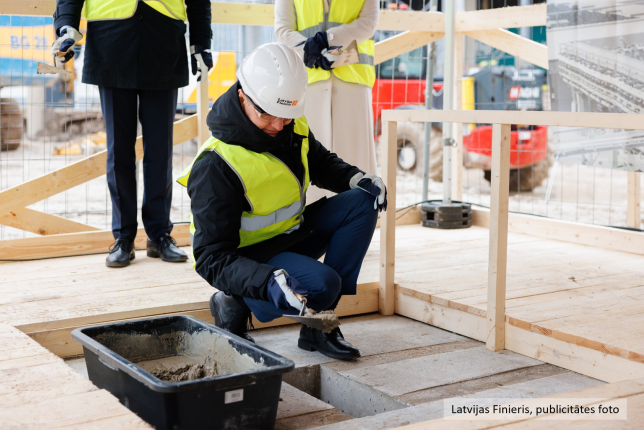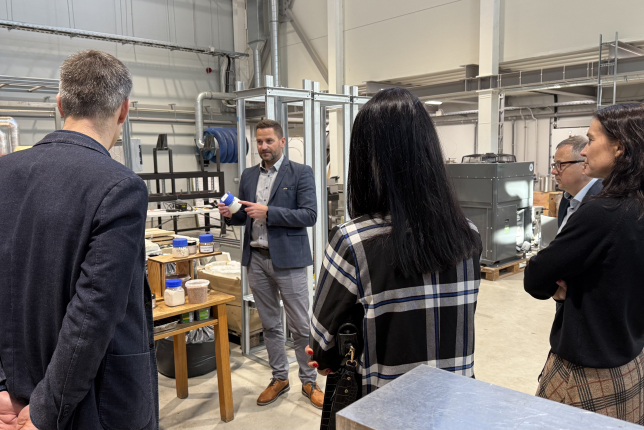LSIWC Strengthens Latvia’s Role in the Global Development of Bioeconomy and Lignin Innovation

In June 2025, the International Lignin Institute (ILI), of which the Latvian State Institute of Wood Chemistry is a member, announced a major step forward in the implementation of its pilot programme. A newly published press release highlights four priority application areas that have shown significant progress in lignin utilization: phenolic resins, polyurethanes, dispersants, and rubber compounds.
These very same application areas are expected to gain importance in Latvia in the coming years, as a commercial-scale biorefinery is planned in Valmiera, led by Fibenol Latvia, a subsidiary of the Estonian clean-tech company Fibenol (LIAA, 2024)
Lignin – A Bio-Based Resource with High-Value Potential
Lignin is one of the primary components of lignocellulosic biomass, contributing to the mechanical strength of plants and their resistance to biotic and abiotic stress. "Approximately 100 million tonnes of lignin are generated globally each year, yet only around 2% is reclaimed or used in high-value applications," according to the ILI's latest report.
Today, lignin is increasingly recognized as a sustainable alternative to fossil-based raw materials in the chemical, materials, and construction industries.
The International Lignin Institute has recently updated its Showcase platform, highlighting the latest advancements in lignin-based applications. Among these are innovations enabling up to 100% replacement of phenol in phenolic resins, 70% substitution of polyols in polyurethanes, the use of lignin-based dispersants that effectively compete with conventional superplasticizers in concrete mixtures, as well as the replacement of technical carbon black in rubber compounds.
Valmiera – Latvia’s Emerging Hub for Lignin-Based Bioeconomy
These global trends strongly resonate with developments in Latvia, particularly with Fibenol’s plans to establish a commercial-scale lignin biorefinery in Valmiera. The facility is based on the company’s successfully demonstrated pilot model in Imavere, Estonia. The Valmiera Industrial Park provides optimal infrastructure, engineering utilities, logistical connections, and the potential for industrial synergies.
The project has been granted the status of a National Priority Investment Initiative, giving access to Latvia’s “Green Corridor” fast-track support services. Production is expected to begin around 2030, marking a significant step in Latvia’s transition toward a high-value, bio-based economy.
Science, Industry, and Policy in Alignment – Latvia’s Strategic Advantage
As a member of the International Lignin Institute (ILI), the Latvian State Institute of Wood Chemistry plays an active role in shaping the scientific foundation for lignin-based innovation. Beyond tracking international progress, LSIWC develops new knowledge in lignin utilization and works to adapt advanced solutions to local and regional contexts.
In Latvia, LSIWC collaborates closely with Fibenol as a scientific partner, contributing research expertise and promoting the development of lignin valorisation approaches that support the country's emerging bioeconomy. This partnership strengthens the science–industry interface and lays the groundwork for future knowledge-based industrial development in the region.


